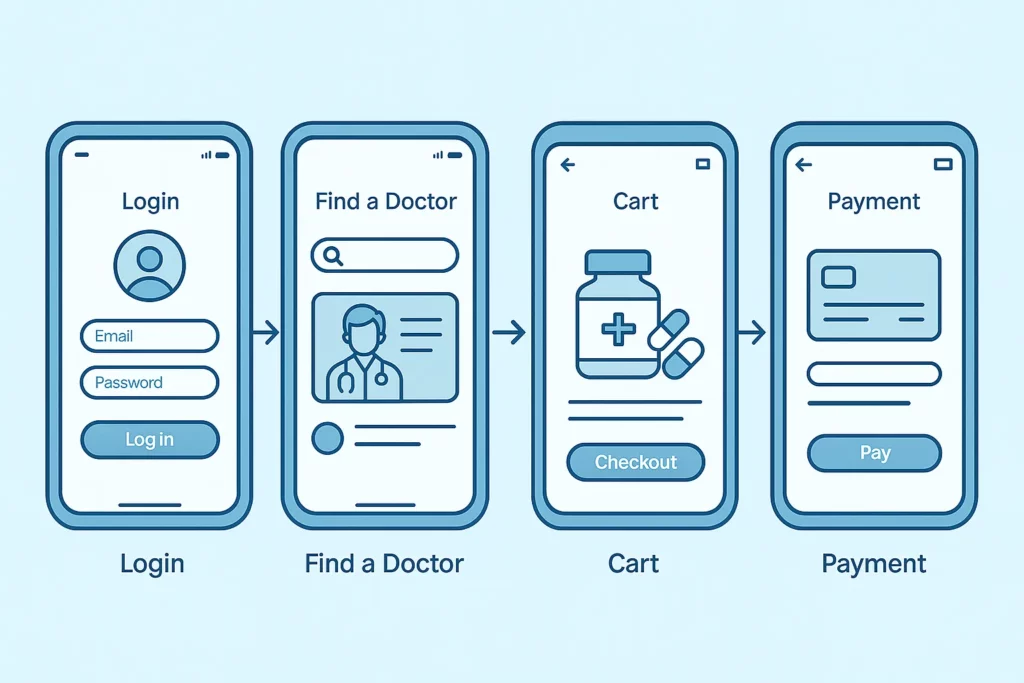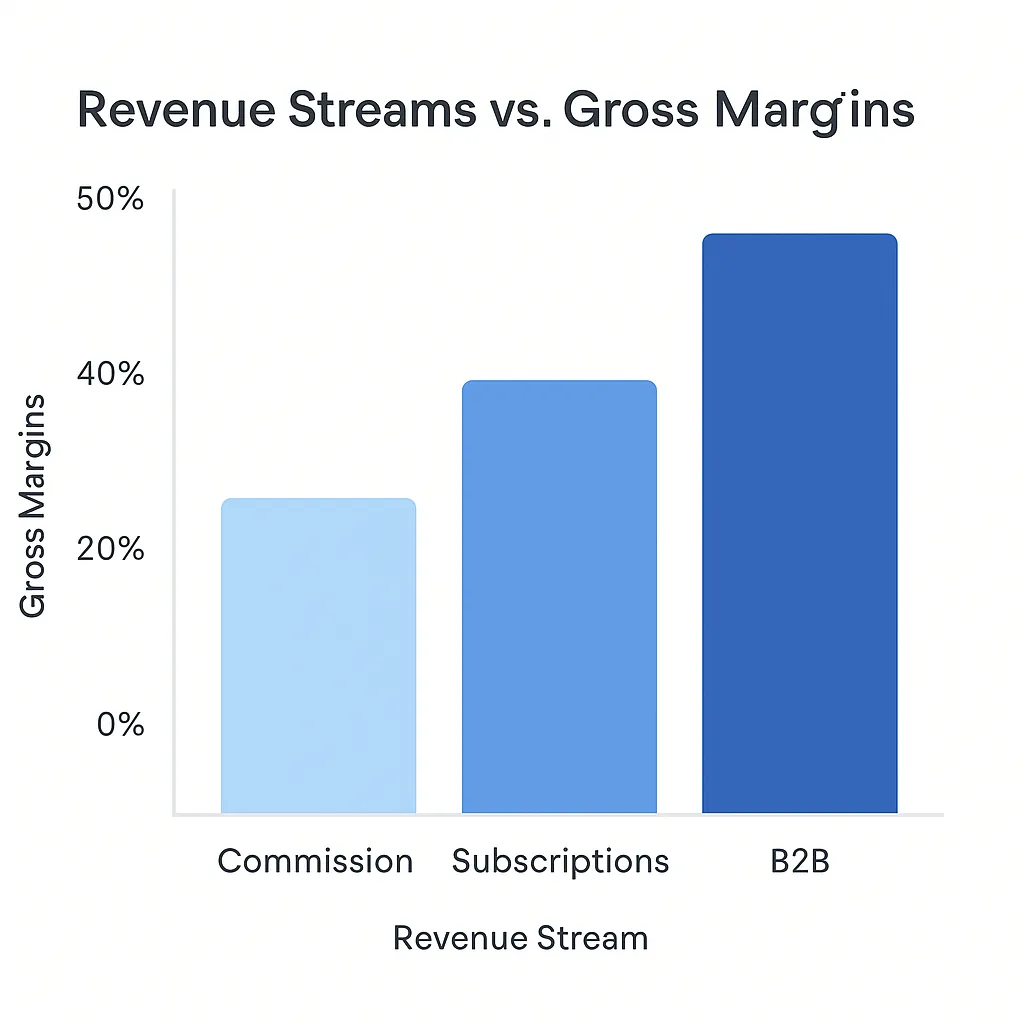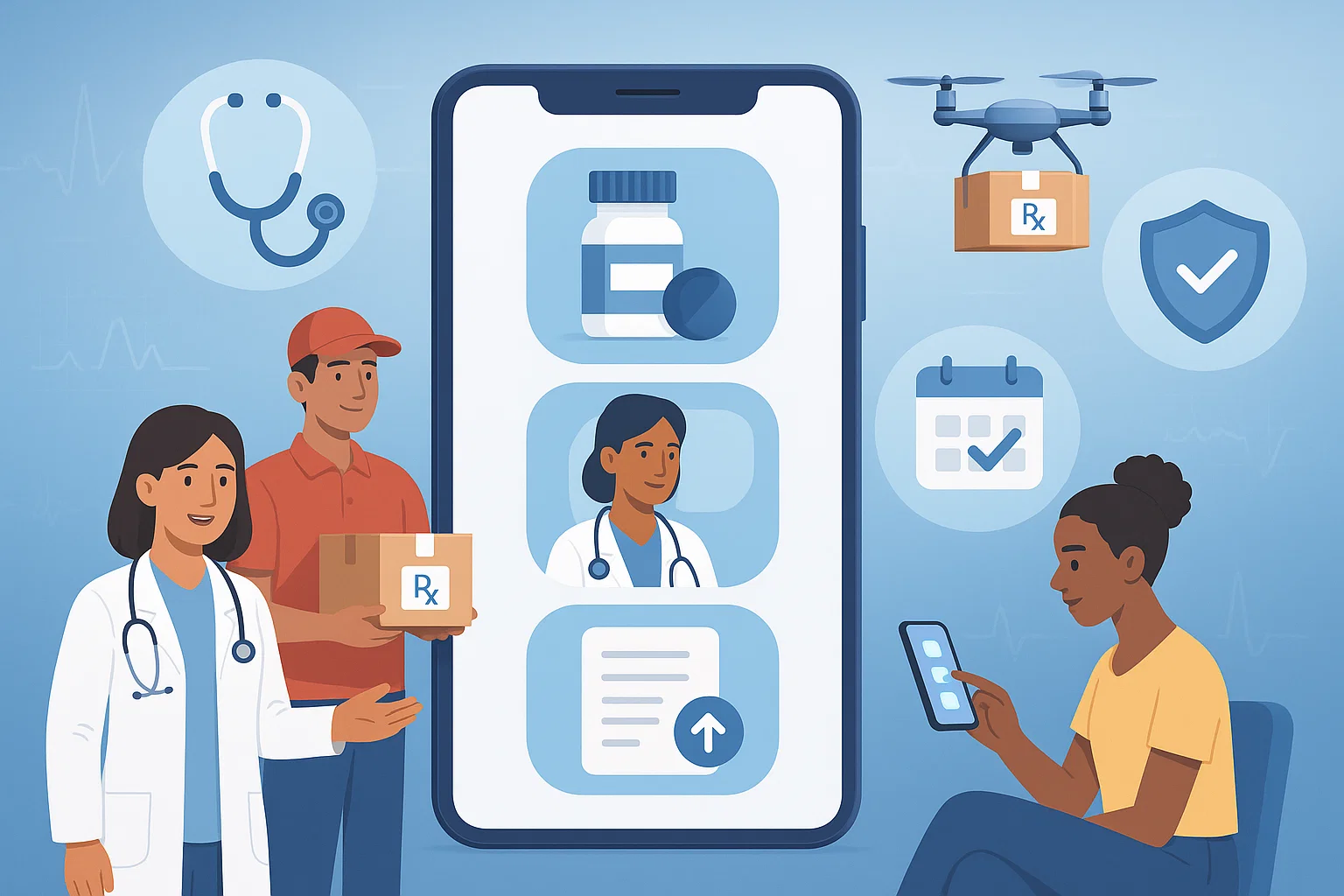Let’s be real: most of us don’t want to visit the doctor unless it’s absolutely necessary. And waiting at pharmacies? Don’t even get us started. With healthcare going digital, more folks are clicking “add to cart” on medicines and doctor consultations from their sofas. That’s a lifestyle shift, not just convenience—and it’s opened a goldmine for startups willing to listen, solve, and ship.
As a creator or startup founder, you might already feel the pull of this rising tide. Think about it: smartphones in every pocket, post-pandemic healthcare awareness, and a generation that Googles symptoms before calling mom. It’s not just about pill delivery anymore—it’s an end-to-end healthcare app experience. One that integrates labs, consultations, e-prescriptions, and maybe even insurance!
If you’re itching to launch your own online pharmacy or digital health platform, you’re not alone—and you don’t have to start from scratch. At Miracuves, we specialize in app clone development that accelerates your go-to-market journey without reinventing the wheel. Let’s break down exactly how to make your healthcare app idea a living, breathing (and profitable) reality.
Why Build an Online Pharmacy & Healthcare App?
The Market is Booming
According to Statista, the global ePharmacy market is projected to reach $177 billion by 2026. That’s a lot of tablets—pun intended.

Changing Consumer Behavior
People want faster, easier, and safer healthcare access. Convenience is the new currency—and apps deliver it with:
- 24/7 availability
- Home delivery
- Remote consultations
- Digital prescriptions
Real-world Proof
Apps like 1mg, PharmEasy, and NetMeds have already set the bar. But guess what? There’s room to niche down and innovate. Think local language support, hyperlocal delivery, chronic care management, or B2B pharmacy integrations.
Also Read :-How to Start an Online Pharmacy & Medicine Delivery Platform Business
Core Features Your App Should Include
Pharmacy Module
- Searchable medicine database
- Upload prescription
- Pill reminder system
- Generic alternatives for cost savings
Telehealth Consultations
- Book/video call with doctors
- AI-based triage assistant
- EMR access
Lab Test Booking
- Partner with labs for at-home sample collection
- Real-time tracking
- E-report delivery
Payments & Subscriptions
- UPI/Card/Wallet integrations
- Health plans & loyalty programs
- Monthly refill subscriptions
Compliance & Security
- HIPAA/GDPR-compliant
- End-to-end encryption
- Multi-factor authentication

Tech Stack & Architecture: The Non-Boring Version
Even if you’re not a techie, knowing your app’s backbone matters.
Backend
- Node.js or Django for APIs
- PostgreSQL or MongoDB for records
- AWS or Google Cloud for hosting
Frontend
- Flutter or React Native (cross-platform wins)
- Material UI for a clean, medical feel
Integrations
- Razorpay/Stripe for payments
- Practo API for doctor listing
- Map APIs for delivery tracking
Learn More :-How Much Does It Cost to Build an Online Pharmacy App from Scratch?
Feature vs. Tech Stack Comparison
Feature Recommended Tech Stack User Authentication Firebase Auth / Auth0 Live Chat Firebase Realtime DB / Socket.IO Push Notifications OneSignal / Firebase Messaging Video Consultations WebRTC / Agora.io Payment Gateway Razorpay / Stripe / PayPal Geo-location & Tracking Google Maps API / Mapbox E-Prescription Management MongoDB / PostgreSQL Cloud Hosting AWS / Google Cloud Platform
Monetization Models That Actually Work
Commission on Each Order
Simple. Scalable. Proven.
Subscription Tiers
Offer premium services—like faster delivery, unlimited doctor calls, or discounted labs—for a monthly fee.
B2B Partnerships
Supply meds to clinics, elder care centers, or even rural health kiosks. Steady revenue, large volumes.

Launch Strategy: From Idea to App Store
Step 1: Validate Your Niche
Talk to pharmacists, doctors, and users. Find the gaps.
Step 2: Design the UX
Use low-code tools or Figma to create mockups that test real-world usability.
Step 3: Choose Clone or Custom?
A clone app (like a 1mg Clone) gets you live faster. Customize over time.
Check out our 1mg Clone Development service at Miracuves.
Step 4: Partner for Delivery & Labs
Local tie-ups matter. Think Swiggy meets diagnostics.
Step 5: Launch, Market, Scale
Leverage local SEO, health influencers, and referral discounts. Then scale what sticks.
Common Pitfalls to Avoid
- Ignoring Regulations: One strike and you’re banned. Consult a healthcare lawyer.
- Overbuilding: Start lean. Add features based on feedback.
- Poor UX: No one wants to fill 9 fields to reorder paracetamol.
Read More :-How to Market an Online Pharmacy & Healthcare App Successfully After Launch
Conclusion :
The online pharmacy and healthcare space isn’t just growing—it’s redefining how we access care. If you’re a builder with a vision (and maybe some caffeine-fueled ambition), now’s the perfect time to enter the arena. Start small, think human-first, and scale smart.
At Miracuves, we help innovators launch high-performance app clones that are fast, scalable, and monetization-ready. Ready to turn your idea into reality? Let’s build together.
FAQs
How much does it cost to develop an online pharmacy app?
It varies, but a basic clone app ranges from $5,000 to $25,000 depending on features and integrations.
Do I need a medical license to run the app?
Yes, either you or your partner pharmacies/doctors must be licensed, depending on your region.
Can I launch this app in multiple languages?
Absolutely! Localization is a key growth hack—especially in multilingual countries like India.
What about delivery logistics?
You can partner with local courier services or build your own fleet for last-mile delivery.
How long does it take to launch?
With a clone base, you can go live in 4–6 weeks. Custom builds might take 3–6 months.
Will I need to hire developers?
Not necessarily. Miracuves offers ready-to-deploy clones with customization support.








